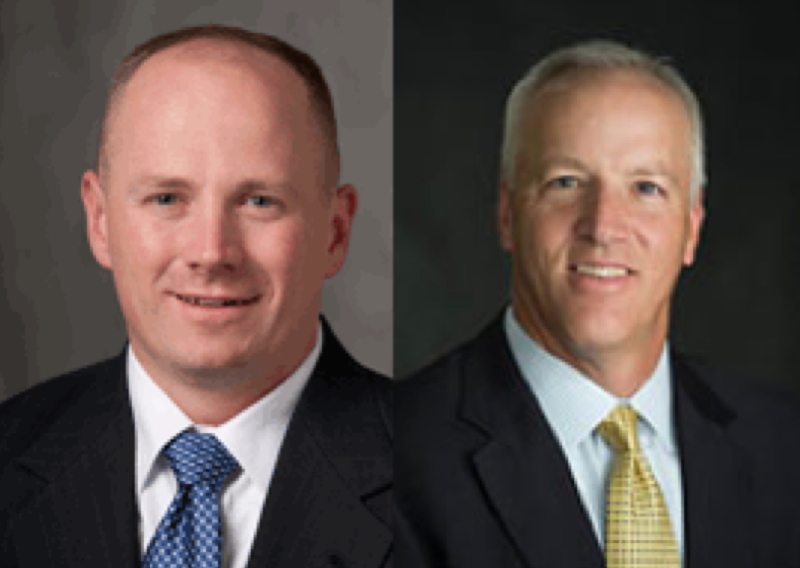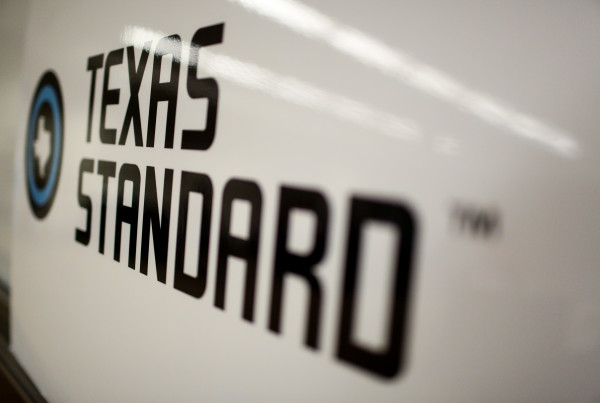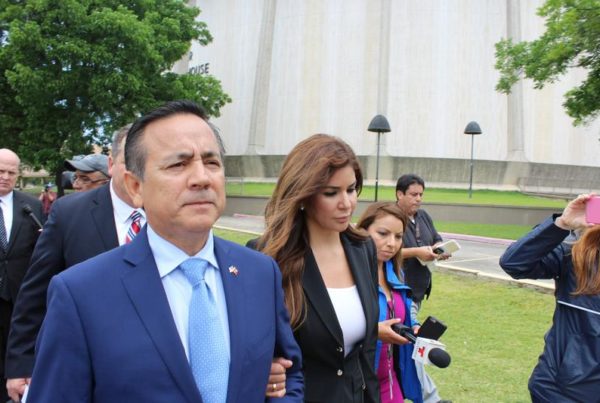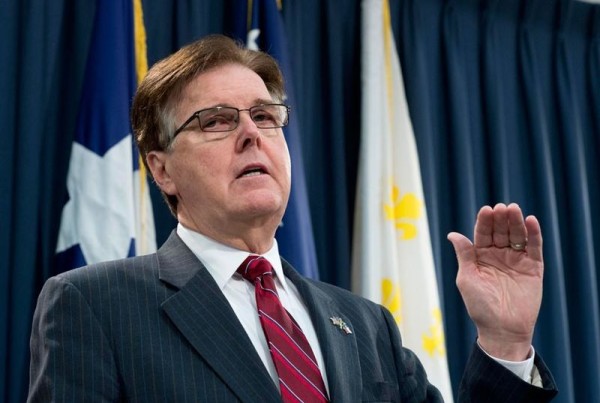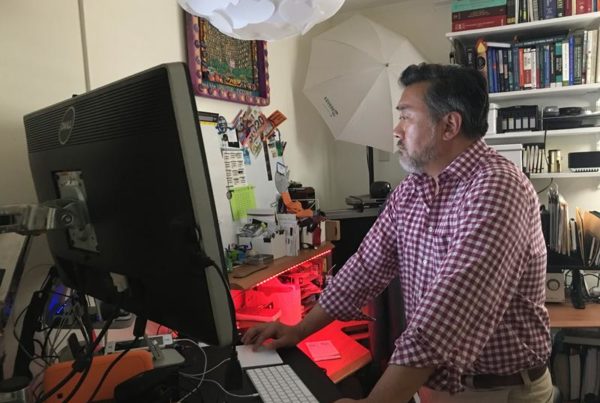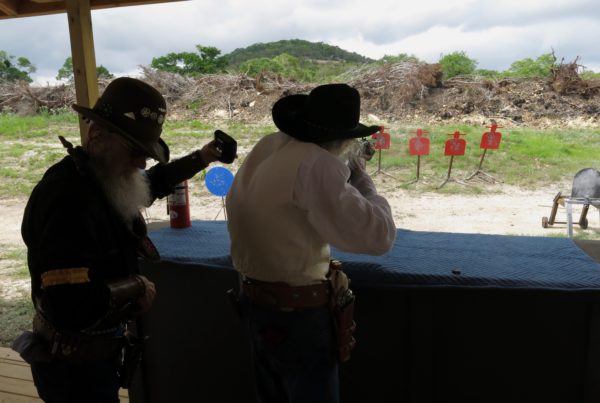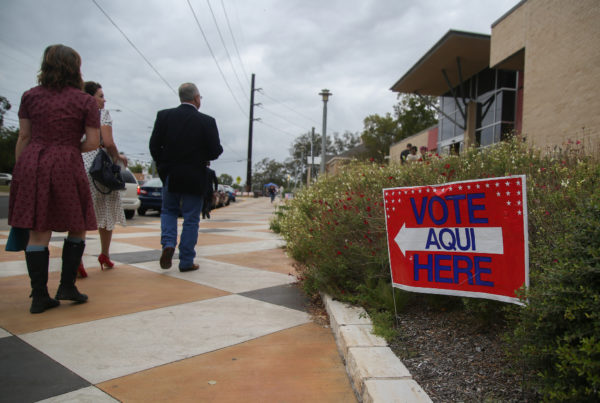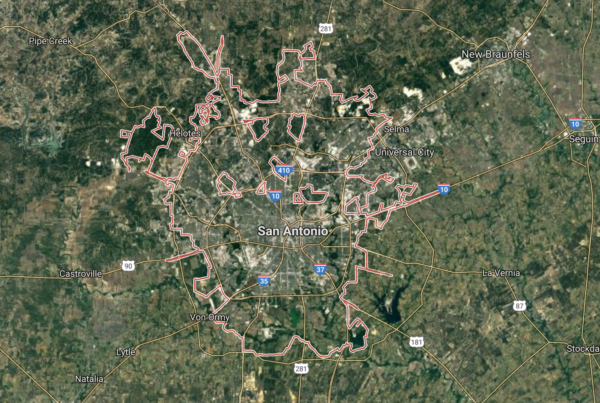When Kenneth Sheets started in the Texas Legislature back in 2011 – he didn’t think about the foster care system or Child Protective Services that much. As a Republican, the former Dallas area State Representative says he was focused on fiscal issues. Until Sheets and his wife decided to have kids.
“And like a lot of folks out there we just had a hard time conceiving,” Sheets says. “And so we started looking to adoption as an option for us and we were exploring a lot of different private adoption agencies and that’s actually when we ran across the CPS system.”
They became foster parents, and eventually adoptive parents, to a brother and sister. (You can learn more about Sheets’ continued efforts to assist foster children here.) Sheets actually met his kids for the first time while lawmakers were in session.
“Being in the legislature and more people hearing that we were in the process of adopting,” Sheets says “it was amazing [the] number of people that stopped by my office and said Oh I have I have adopted children too. And I was even more surprised by the number of folks who had adopted children through CPS as well.”
At the same time, he says members started hearing more about problems in the foster care system, and realized something had to be done. In 2015, his last session in office, the legislature increased funding for caseworkers.
“Now obviously it wasn’t enough, but we made good progress in 2015 and I’m excited about what we’re seeing the legislature do this session,” he says.
The big push this year is to move Texas foster care from a state-run system to an increasingly privatized model that relies on community organizations to provide the lion’s share of services.
One lawmaker leading the effort is State Rep. James Frank, a Wichita Falls Republican. Like Sheets, he used to be a foster parent. Frank also has four, older biological sons.
“We’ve got a couple boys, ten and twelve, that we’ve adopted out of the foster care system so we’ve probably had more experience than others,” Frank says.
Frank wants local nonprofit or government entities to contract with the state to take charge of foster care and case management in a single region. He says different parts of Texas need different things.
“It’s going to look different in Harris County that it does in Wichita Falls or Laredo or other places,” he says. “This is not a state that is the same everywhere.”
Frank’s House version of the plan, House Bill 6, effectively died last week. But Thursday, he’ll be shepherding similar legislation from the Senate. Under both plans, the state would still remove kids from their homes, but after that, everything would be handled by private child welfare organizations. Frank says it wasn’t just his experience as a foster parent that led him to push for these changes.
“My experience is just one,” Frank says. “I think it’s important not to legislate over one experience you know, so we’ve talked to hundreds and hundreds of people and one of the best things about being in the legislature you get to talk to experts from all over the state…and we need an agency that can work consistently but also can appreciate the nuances of different areas.”
In the current foster care system, kids are placed wherever a family or a bed is available, even if it’s hours away. Frank says community-based care would keep kids closer to home. Sheets says that’s a good thing.
“I think that helps with the children as they’re dealing with the trauma of the situation they’re in is at least they’re in a somewhat familiar geographic area,” Sheets says.
While Sheets and Frank agree on how to overhaul the system, there are, of course, critiques of this year’s efforts. For example, Frank drew criticism for a recent bill that would allow private child placement agencies to turn away prospective parents based on the organization’s religious beliefs. And some say the state system hasn’t been allowed to function because it’s been underfunded for decades. And with the proper funding, increased privatization wouldn’t be necessary.
Some parent advocates and social work organizations worry about taking case management out of the state’s hands. Bob Garrett is a reporter with the Dallas Morning News. He’s covered the state’s foster care system for years. (You can read about the upcoming debate on Senate Bill 11 here.)
“It is an enormous undertaking to transfer a lot of the state’s duties over to a private company,” Garrett says.
But lawmakers had to do something this session. In late 2015, Judge Janis Graham Jack ruled the state’s foster care system was unconstitutional and violated kids’ rights.
“It’s a big turn that Texas is trying to take toward this redesigned foster care system,” Garrett says “and Judge Jack said ‘I don’t know based on everything else you’ve done over the last 20 years, – I’m very skeptical you’re really doing something.’”
Judge Jack has said she’ll take a look at whatever the state comes up with. James Frank thinks the move towards a more privatized, community-based model WOULD do something to make the foster care system better for kids like his.


